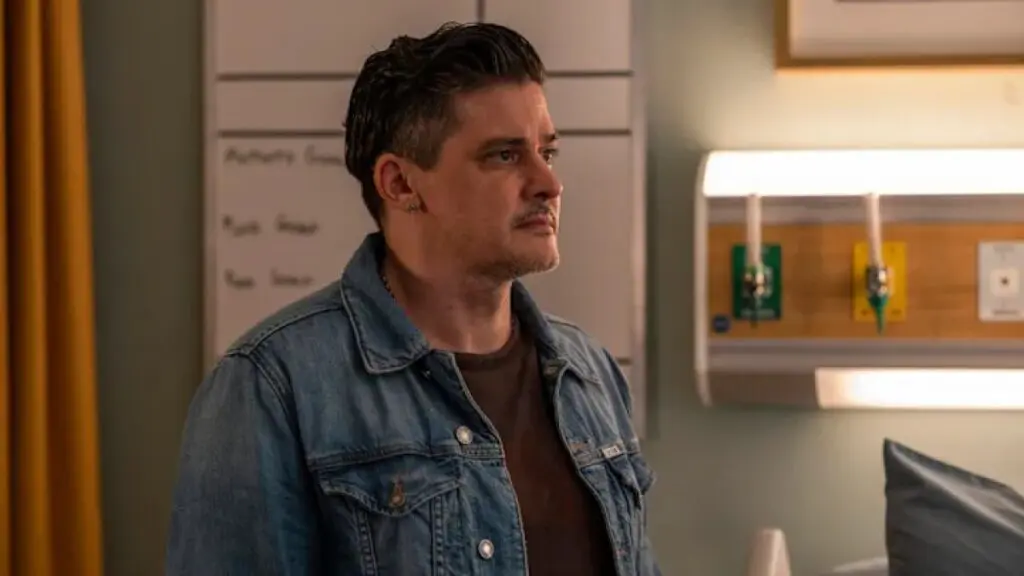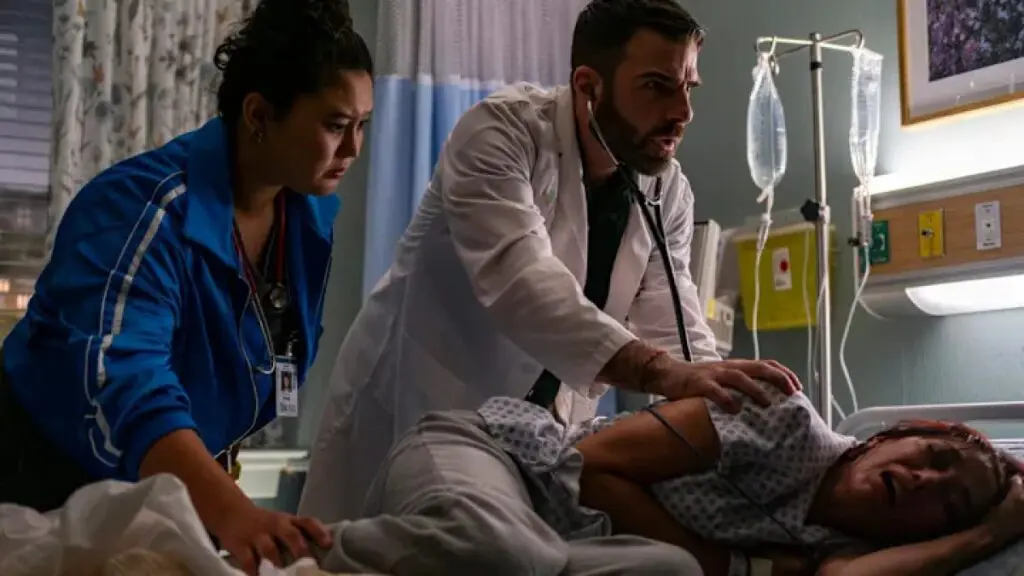Summary
Brilliant Minds navigates its central theme well in Episode 10, weaving multiple character-based subplots through the core cases.
Episode 10 of Brilliant Minds is about pain, in ways both obvious and not. “The First Responder” as a title is misleading. Sure, one of the focal characters is a paramedic, but this is a pretty wide-ranging episode that uses its central theme to explore the inner anxieties of multiple patients, including several of the doctors.
I liked this episode quite a bit. It doesn’t have the most novel cases but it ties them together better than usual and has a couple of smart and effective touches for good measure. We’re deep enough into the series now that the interpersonal relationships of the Bronx General staff are occupying more and more time, so it feels like there’s a little more texture to everything. And I can’t help but get the feeling that it’s all going to go wrong – in a good way! – in the near future.
Let’s break it all down. But do note: While NBC provides screeners for this show, they don’t provide screeners with subtitles or in a higher resolution than 720p, so I’m flying a little blind with the names and spellings thereof. Can’t be helped.
The Kid Who Feels No Pain
Despite the title, it’s really one of the titular paramedic’s patients who occupies a good chunk of Brilliant Minds Episode 10. He’s an autistic kid named Finn whom we meet banging his head against the bathroom door repeatedly. As it turns out, he’s pretty injury-prone, and his father is so eager to make excuses for it that I thought we were heading down a predictable path of revealing that he’s abusive or some such.
But I should have known better. Finn’s problem is he has CIP (Congenital Insensitivity to Pain) – he gets injured all the time because he literally can’t feel pain. It’s not a terminal diagnosis but it is a big deal – sufferers tend to die in childhood because of undiagnosed injuries or illnesses, and if they live beyond 25, it’s usually not for long.
The outcome of this case is that with some experimental treatment and regular sessions Finn can essentially be trained to be careful of his surroundings. But it’s not really about the outcome; it’s about the idea of not having one of our most essential defense mechanisms. Pain is a warning system. It keeps us alive. And it’s smart that Brilliant Mind juxtaposes Finn’s case with one that is almost the exact opposite.
Note: It’s also smart how Ericka figures out the diagnosis – Van’s mirror-touch synaesthesia doesn’t flare up when Finn rips his cannula out. Since he didn’t feel anything, it stands to reason the kid didn’t feel anything either. Clever.
The First Responder
Katie is a paramedic, and it’s she who initially drops Finn off at Bronx General. Dr. Wolf notices some worrying symptoms then, but she goes back out into the field. When she returns with another patient, though, she collapses.
Katie wants to discharge herself. She doesn’t want a CT scan and doesn’t want to take any time off work. It’s easy to imagine she’s just a careerist, but Wolf can sense that there’s something more at play. She’s eventually diagnosed with listeria meningitis, but that’s only the tip of the iceberg. Even with antibiotics, she gets worse, for reasons that nobody can initially detect.
As it turns out Katie has been self-medicating with steroids for months after a gunshot wound on a call left her with chronic pain. The steroids have left her immunocompromised, so the infection is killing her. She can be weaned off the steroids, but that doesn’t address the root issue – ceaseless pain. “The First Responder” offers a very good depiction of how mentally debilitating this kind of chronic pain can be.
The juxtaposition with Finn’s case is obvious – no pain at all is bad, but pain all the time is also bad. Everything’s a delicate balance that is difficult to achieve and even more difficult to maintain. You can apply that to almost anything.
Also note: There’s another nice touch when Katie is recounting her shift to Wolf and her recollections are so vivid he imagines he’s physically present in the ambulance. Brilliant Minds does this a lot and it works well in Episode 10.

Brilliant Minds Episode 10 Still | Image via NBC
Relationship Check-In
There’s a fair bit going on in the romantic lives of the Bronx General staff here, so let’s do a quick round-up of who’s who and what’s what.
There is palpable sexual chemistry between Katie and Dana. Since Katie is a first responder who is frequently at the hospital, a part of me does wonder whether she might make a few return visits to strike up a relationship here. This might be wishful thinking, but you never know.
Speaking of Dana, she pushes Jacob to act on the obvious chemistry between him and Ericka, which ends awkwardly when he turns up at her apartment and she politely shoos him away because she’s “busy”. Van’s inside, obviously, and Jacob definitely gets a glimpse of his Crocs inside the door. I suspect this will crop up again.
And, finally, Nichols is back! He gets nothing of note to do, but his presence does raise the issue that Wolf has yet to tell Carol about their relationship. Nichols isn’t sure how to take this, and Wolf isn’t initially sure what it means even to him. He does eventually tell her, but she is, unfortunately, a little too preoccupied to really take it in.
Carol’s Job Is On The Line
Carol’s problem, following on from the end of the previous episode, remains Alison. After smashing her car up, she just so happens to bump into Carol in the street, provocatively letting her know that Morris introduced her to their daughter.
Carol can’t let this slide and finally confronts her husband about Alison’s various accusations, which he confirms to be accurate. Carol has had enough and dismisses him, but she’s trapped in a serious predicament. Since she knew who Alison was and continued to treat her, she has committed a pretty egregious professional infraction and can now be blackmailed. And Alison, of all people, knows this.
But after speaking to Morris, Alison throws a curveball by sending Carol a bouquet of flowers with a note reading: “You win. You’ll never see me again.” Carol intuits the meaning immediately. She rushes to Alison’s apartment with a crisis team and finds Alison unconscious on the floor, having attempted suicide.
Pardon me for not being entirely sympathetic, but I think the bigger implications here are about Carol’s job. Is the truth going to come out as a result of this and threaten her position? We’ll have to wait and see.
RELATED:




